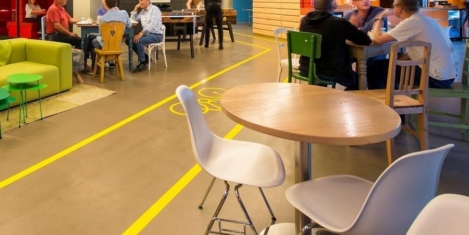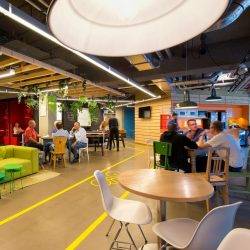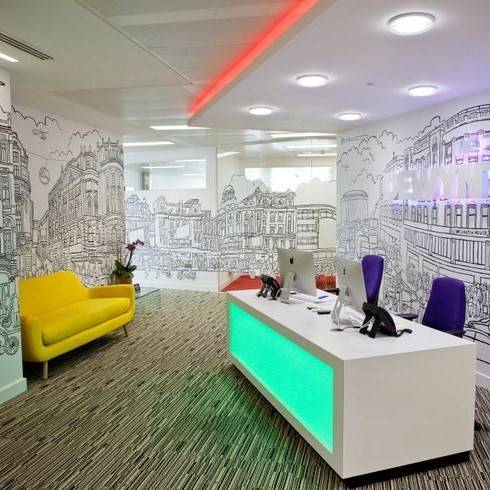October 5, 2017
New research explores how the brain needs sleep to reorganise itself
 A new study from researchers in Berlin and Surrey offers insights into how sleep contributes to brain plasticity – the ability for our brain to change and reorganise itself – and could pave the way for new ways to help people with learning and memory disorders. The team of researchers at the Humboldt and Charité Universities in Berlin, led by Dr Julie Seibt from the University of Surrey, applied cutting edge techniques to record activity in a particular region of brain cells that is responsible for holding new information – the dendrites. The study, published in the open access journal Nature Communications, found that activity in dendrites increases when we sleep, and that this increase is linked to specific brain waves that are seen to be key to how we form memories.
A new study from researchers in Berlin and Surrey offers insights into how sleep contributes to brain plasticity – the ability for our brain to change and reorganise itself – and could pave the way for new ways to help people with learning and memory disorders. The team of researchers at the Humboldt and Charité Universities in Berlin, led by Dr Julie Seibt from the University of Surrey, applied cutting edge techniques to record activity in a particular region of brain cells that is responsible for holding new information – the dendrites. The study, published in the open access journal Nature Communications, found that activity in dendrites increases when we sleep, and that this increase is linked to specific brain waves that are seen to be key to how we form memories.






















 With a plethora of reports around that generalise the behaviour of an entire generation of people, yet another exploration of the Millennial has to be approached with caution. But for this latest study, “The Millennial mindset: Work styles and aspirations of the most misunderstood worker”,
With a plethora of reports around that generalise the behaviour of an entire generation of people, yet another exploration of the Millennial has to be approached with caution. But for this latest study, “The Millennial mindset: Work styles and aspirations of the most misunderstood worker”, 
 Work is the biggest barrier to taking regular exercise a new survey suggests, with 20 percent of people citing being too busy with work as the reason why they are not more physically active. The research, which is published by not-for-profit health body ukactive to mark today’s National Fitness Day 2017 also reveals that only 1 in 10 adults (12 percent) know NHS recommended physical activity guidelines and well over half of Brits spend at least six hours each day sitting down. In addition to shunning exercise, more than 64 percent of adults spend at least six hours each day sitting, be it at work, in front of the TV, commuting or on social media. The average UK adult also spends more than twice as much time sitting on the toilet as they do exercising, with the study of 2,004 British adults by ComRes reveals that British adults say they are on the loo for an average of 3 hours and 9 minutes each week, compared to just 1 hour and 30 minutes spent doing moderate exercise such as fast walking or riding a bike.
Work is the biggest barrier to taking regular exercise a new survey suggests, with 20 percent of people citing being too busy with work as the reason why they are not more physically active. The research, which is published by not-for-profit health body ukactive to mark today’s National Fitness Day 2017 also reveals that only 1 in 10 adults (12 percent) know NHS recommended physical activity guidelines and well over half of Brits spend at least six hours each day sitting down. In addition to shunning exercise, more than 64 percent of adults spend at least six hours each day sitting, be it at work, in front of the TV, commuting or on social media. The average UK adult also spends more than twice as much time sitting on the toilet as they do exercising, with the study of 2,004 British adults by ComRes reveals that British adults say they are on the loo for an average of 3 hours and 9 minutes each week, compared to just 1 hour and 30 minutes spent doing moderate exercise such as fast walking or riding a bike.
 UK workers are still uncomfortable about having honest conversations at work, with nearly two thirds (61 percent) feel they keep an aspect of their lives hidden in the workplace. The research from Inclusive Employers found family difficulties (46 percent) was the most likely hidden issue at work, followed by mental health (31 percent). One in five also admitted they would hide their sexual orientation while at work. It also found a generational divide, with 67 percent of employees aged between 18 -24 years old keeping something secret compared to 55 percent of those over aged 55 years or over. The data, released to mark National Inclusion Week 2017, found this lack of openness can have negative impacts on workers and employers, with over a quarter of workers (26 percent) admitting they would feel less connected to their workplace if they hid an aspect of themselves and 18 percent saying their performance would suffer.
UK workers are still uncomfortable about having honest conversations at work, with nearly two thirds (61 percent) feel they keep an aspect of their lives hidden in the workplace. The research from Inclusive Employers found family difficulties (46 percent) was the most likely hidden issue at work, followed by mental health (31 percent). One in five also admitted they would hide their sexual orientation while at work. It also found a generational divide, with 67 percent of employees aged between 18 -24 years old keeping something secret compared to 55 percent of those over aged 55 years or over. The data, released to mark National Inclusion Week 2017, found this lack of openness can have negative impacts on workers and employers, with over a quarter of workers (26 percent) admitting they would feel less connected to their workplace if they hid an aspect of themselves and 18 percent saying their performance would suffer.








October 4, 2017
Convergence of work and life defines September London workplace design shows
by Paul Goodchild • Comment, Events, Flexible working, Furniture, Workplace design
(more…)